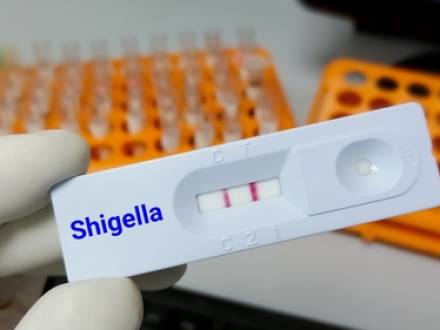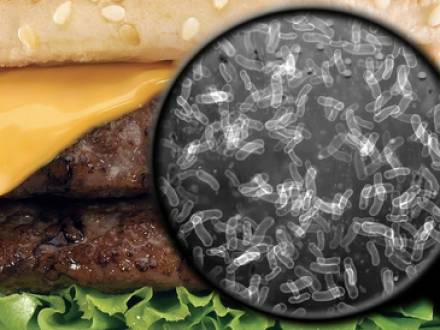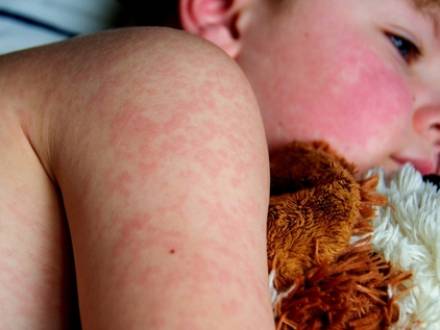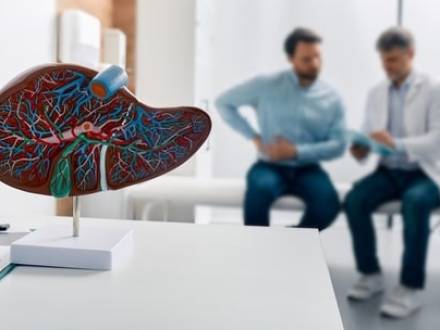
312-981-0409
33 N Dearborn St 10th Floor, Chicago, IL 60602
Serving Clients Across 7 Illinois Locations
Recent Blog Posts
Food Poisoning Among the Elderly
 Anyone can be made seriously ill by contaminated food. However, food poisoning poses special risks to the elderly. Older adults are more likely to be hospitalized or even pass away due to serious food poisoning. Younger adults are often healthier overall and better able to fight off a foodborne illness. An illness that might not be too dangerous for a young, healthy person to endure might pose far greater risks to someone who is elderly and already has health problems. If you are an older adult who contracted a foodborne illness, you may be entitled to significant compensation. Even if you do not know which food made you ill, your Illinois food poisoning attorney may be able to identify an outbreak you were affected by and the corporation responsible.
Anyone can be made seriously ill by contaminated food. However, food poisoning poses special risks to the elderly. Older adults are more likely to be hospitalized or even pass away due to serious food poisoning. Younger adults are often healthier overall and better able to fight off a foodborne illness. An illness that might not be too dangerous for a young, healthy person to endure might pose far greater risks to someone who is elderly and already has health problems. If you are an older adult who contracted a foodborne illness, you may be entitled to significant compensation. Even if you do not know which food made you ill, your Illinois food poisoning attorney may be able to identify an outbreak you were affected by and the corporation responsible.
How Food Poisoning Affects the Elderly Differently
Older adults often have existing health problems. The older people get, the more health problems they tend to acquire. Things like diabetes, COPD, and heart problems are common. A few reasons why foodborne illnesses are more dangerous for older adults include:
E. Coli Outbreak Linked to McDonald's Quarter Pounders
 A recent E. coli outbreak was linked to McDonald's Quarter Pounders. The outbreak hospitalized at least 34 people and caused one confirmed death. The Center for Disease Control later determined that onions produced by Taylor Farms were contaminated with the deadly bacteria. These onions were distributed to McDonald's and other retailers. While McDonalds uses onions on most of its burgers, the contaminated onions were used to produce the slivered onions that are used on Quarter Pounder sandwiches. If you became ill in late October after eating onions, you may have been affected by this outbreak. People who needed medical treatment after acquiring an E. coli infection may be eligible for compensation. An experienced Illinois food poisoning attorney can assess your case and determine whether you may have a claim.
A recent E. coli outbreak was linked to McDonald's Quarter Pounders. The outbreak hospitalized at least 34 people and caused one confirmed death. The Center for Disease Control later determined that onions produced by Taylor Farms were contaminated with the deadly bacteria. These onions were distributed to McDonald's and other retailers. While McDonalds uses onions on most of its burgers, the contaminated onions were used to produce the slivered onions that are used on Quarter Pounder sandwiches. If you became ill in late October after eating onions, you may have been affected by this outbreak. People who needed medical treatment after acquiring an E. coli infection may be eligible for compensation. An experienced Illinois food poisoning attorney can assess your case and determine whether you may have a claim.
How Do I Know If I Have an E. Coli Infection?
E. coli infections can be serious. While some people get better in a few days without treatment, others can require hospitalization and intensive medical treatment to survive. Common symptoms of E. coli infection include:
The Dangers of Drinking Improperly Processed Cider and Juice
 Apple cider is a favorite fall drink for many, and juice is popular year-round. These drinks must be processed correctly to kill harmful bacteria that may be present. Untreated juices can cause foodborne illnesses and are particularly dangerous to young children, pregnant women, mature adults, and those with weak immune systems.
Apple cider is a favorite fall drink for many, and juice is popular year-round. These drinks must be processed correctly to kill harmful bacteria that may be present. Untreated juices can cause foodborne illnesses and are particularly dangerous to young children, pregnant women, mature adults, and those with weak immune systems.
If you became ill due to drinking unpasteurized or improperly treated juices or cider, you may be entitled to compensation. Few attorneys have the focused knowledge required to handle these cases effectively, but the lawyers from Newland & Newland, LLP do. Call now for your free consultation.
Unpasteurized Beverages
Although pasteurization is not required, unpasteurized cider and other juices should remain refrigerated. These drinks must also have a label warning consumers about the lack of pasteurization, which is a process using heat to kill bacteria and prolong shelf life. If you purchase unpasteurized cider or other drinks, the Centers for Disease Control and Prevention recommends that you boil them for one minute or longer before consumption.
What Is Shigella, and How Can It Affect Me?
 When you take your family to a restaurant, you expect a pleasant meal without needing to prepare it or clean up afterward. What you do not expect is to become ill a few hours later. Unfortunately, multiple diners who recently ate at a Fairview Heights, IL, LongHorn Steakhouse have tested positive for Shigellosis, an illness caused by the Shigella bacteria. The restaurant temporarily closed due to the outbreak.
When you take your family to a restaurant, you expect a pleasant meal without needing to prepare it or clean up afterward. What you do not expect is to become ill a few hours later. Unfortunately, multiple diners who recently ate at a Fairview Heights, IL, LongHorn Steakhouse have tested positive for Shigellosis, an illness caused by the Shigella bacteria. The restaurant temporarily closed due to the outbreak.
What is Shigella and how is it transferred? How does this bacteria affect people who are infected? Can you get compensation? A trusted Illinois food poisoning lawyer from Newland & Newland, LLP can answer your questions and assess your eligibility for compensation during your free consultation.
What Is Shigella?
Shigella is a bacterium that can be found in contaminated water and food. It can cause shigellosis, which infects approximately 450,000 people annually in the U.S. Symptoms typically present within two days and last seven days. These symptoms include:
How Can Eggs Become Contaminated With Salmonella? | IL
 Did you know there are over 2,500 strains of nontyphoidal salmonella? Worldwide, around 150 million people become ill and approximately 60,000 deaths occur due to salmonella every year. A recent outbreak associated with eggs produced and sold by Milo’s Poultry Farms, LLC in Wisconsin affected several people in Illinois.
Did you know there are over 2,500 strains of nontyphoidal salmonella? Worldwide, around 150 million people become ill and approximately 60,000 deaths occur due to salmonella every year. A recent outbreak associated with eggs produced and sold by Milo’s Poultry Farms, LLC in Wisconsin affected several people in Illinois.
Have you ever wondered how salmonella can get into an egg? What should you do if you become ill from salmonella? The experienced lawyers at Newland & Newland, LLP can help you obtain compensation if you qualify, so call now for your free consultation.
What Happened With the Milo’s Poultry Farms, LLC Outbreak?
According to the U.S. Food & Drug Administration, eggs supplied by the company to Wisconsin, Michigan, and Illinois have been linked to an outbreak of Salmonella Enteritidis, one of the most common strains of the bacteria. As of September 6, 2024, there were 11 reported cases of salmonella illness in Illinois. The poultry farm voluntarily recalled all eggs.
September is National Food Safety Education Month
 According to the Centers for Disease Control and Prevention, 48 million people in the U.S. get sick from foodborne diseases every year. 128,000 of those people are admitted to hospitals, with 3,000 losing their lives. This serves as a stark reminder that food poisoning is a serious problem.
According to the Centers for Disease Control and Prevention, 48 million people in the U.S. get sick from foodborne diseases every year. 128,000 of those people are admitted to hospitals, with 3,000 losing their lives. This serves as a stark reminder that food poisoning is a serious problem.
As part of a campaign to prevent food poisoning, the Illinois Department of Public Health recently issued a statement to remind you of basic precautions that can help avoid unnecessary risks. If you become ill due to food poisoning, the lawyers at Newland & Newland, LLP have extensive knowledge and experience helping victims recover compensation. Call today for your free consultation so we can discuss your case and explain how we can help.
The Unfortunate Effects of Food Poisoning
There are 31 known pathogens that can cause foodborne illnesses. Norovirus, salmonella, clostridium perfringens, campylobacter, and staphylococcus aureus are responsible for 91 percent of the nation’s annual tally of foodborne sicknesses. Other dangerous pathogens include E. coli, listeria, hepatitis A, shigella, cryptosporidium, and botulism. Frequently experienced symptoms include:
Can I Sue for Food Poisoning After an Allergic Reaction? | IL
 Approximately 6 percent of children and adults in the U.S. have food allergies, with allergic reactions to food ranging from mild tingling or itching to life-threatening conditions. In a recent U.K. tragedy, an allergic reaction to cow’s milk was fatal.
Approximately 6 percent of children and adults in the U.S. have food allergies, with allergic reactions to food ranging from mild tingling or itching to life-threatening conditions. In a recent U.K. tragedy, an allergic reaction to cow’s milk was fatal.
Can you sue a restaurant or food vendor for food poisoning if you have an allergic reaction to the food they serve you? How do you know if you qualify? A knowledgeable lawyer from Newland & Newland, LLP can discuss your case and provide answers during your free consultation.
What Happened in the U.K. Incident?
A mother and her 13-year-old daughter ordered soy hot chocolate drinks at a coffee shop. The mother explained that the girl had severe allergies to cow’s milk and requested that the shop’s employees clean their equipment before preparing her order. After taking only one sip of the hot chocolate she was served, the girl experienced a severe allergic reaction, which led to her death later that day.
Can You Get Food Poisoning Compensation from a Food Truck?
 When you hear about cases of food poisoning, they often involve restaurants, grocery stores, and other permanent facilities where people can buy unprepared or ready-to-eat food. While it is true that individual cases or outbreaks often come from this type of setting, you can also suffer from foodborne illnesses due to eating food provided by mobile vendors. These illnesses may require medical treatment, cause you to miss work, and even cause death.
When you hear about cases of food poisoning, they often involve restaurants, grocery stores, and other permanent facilities where people can buy unprepared or ready-to-eat food. While it is true that individual cases or outbreaks often come from this type of setting, you can also suffer from foodborne illnesses due to eating food provided by mobile vendors. These illnesses may require medical treatment, cause you to miss work, and even cause death.
At Newland & Newland, LLP, we have specific experience handling food poisoning cases that other firms lack. One of our well-qualified attorneys can help you get the compensation you deserve.
What Are Mobile Food Vendors?
Food trucks, carts, trailers, and kiosks are examples of mobile food vending operations. These businesses sell ready-to-eat foods that may be prepared in a licensed food establishment or on-site. These vendors need various permits and licenses and must meet certain requirements to comply with state and local laws, which may vary by location and type of vendor. Chicago alone has around 300 mobile food trucks and vendors, with many more throughout Illinois.
The Raw Truth of Drinking Unpasteurized Milk
 An unexpected trend has emerged in the dairy industry: a significant increase in raw milk sales. Despite longstanding warnings from health authorities, consumers are flocking to unpasteurized dairy products, potentially putting their health at risk. An Illinois lawyer can help you address this concerning trend and provide clarity on the dangers associated with raw milk consumption.
An unexpected trend has emerged in the dairy industry: a significant increase in raw milk sales. Despite longstanding warnings from health authorities, consumers are flocking to unpasteurized dairy products, potentially putting their health at risk. An Illinois lawyer can help you address this concerning trend and provide clarity on the dangers associated with raw milk consumption.
The Surge in Raw Milk Sales
According to recent NielsenIQ data, raw cow’s milk sales have increased by 21 percent to 65 percent compared to the previous year. This surge comes at a particularly precarious time, as the first cases of bird flu in U.S. cattle were confirmed on March 25, 2024. The Centers for Disease Control and Prevention (CDC) has explicitly labeled raw milk as one of the "riskiest" foods people can consume, yet sales continue to climb.
How Can You Get Hepatitis A?
 Hepatitis A is a viral infection that is highly contagious and primarily affects the liver, causing inflammation. Understanding how this virus spreads is important for prevention and protecting your health. An Illinois lawyer can help you understand the impact of hepatitis A outbreaks on individuals and communities.
Hepatitis A is a viral infection that is highly contagious and primarily affects the liver, causing inflammation. Understanding how this virus spreads is important for prevention and protecting your health. An Illinois lawyer can help you understand the impact of hepatitis A outbreaks on individuals and communities.
Signs of Hepatitis A to Watch Out For
Recognizing the symptoms of hepatitis A is important for early detection and treatment. The signs typically appear two to seven weeks after exposure to the virus. It is important to note that not all infected individuals, especially children, may show symptoms. Here are key signs to watch out for:
- Joint pain
- Low-grade fever
- Loss of appetite
- Dark urine
- Fatigue and weakness
-

Foreclosure and Bankruptcy
Visit Website -

Real Estate and Estate Planning
Visit Website -

Personal Injury
Visit Website

 Spanish
Spanish Cantonese
Cantonese















